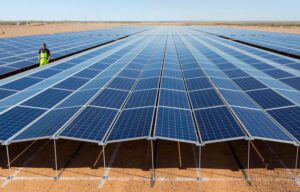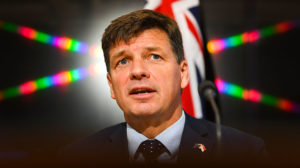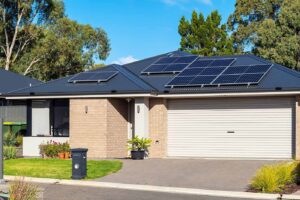Australia’s current greenhouse gas emissions are not good enough to meet the goals of the Paris Agreement, and tAustralia should be aiming to reach zero net emissions as early as 2035, a new report from leading Australian climate researchers has found.
The report has been published by the independent ‘Climate Targets Panel’, which includes former federal Liberal party leader John Hewson, and leading climate researchers professor Will Steffen, professor Lesley Hughes and associate professor Malte Meinshausen.
Significantly, the report suggests that even adopting a target to reach zero net emissions by 2050 would not be consistent with Australia’s obligations under the Paris Agreement and that transitioning to zero net emissions would need to happen as early as 2035.
Key to reaching this target, the group says, is locking in meaningful interim reduction targets, including a target to reduce emissions by at least 50 per cent by 2030 in a scenario that limits warming to just 2 degrees.
“Recently, key trading partners Japan and South Korea have committed to ‘net-zero by 2050’ targets and there has been discussion about whether Australia should do the same. China, Australia’s largest trading partner, has committed to a net-zero by 2060 target,” the group says.
Based on the straight line emission trajectory assumption employed above, we found that Paris Agreement compliant 1.5°C and 2°C targets require net-zero by 2035 or 2045 respectively. Therefore a ‘straight line’ approach to net-zero by 2050 is not compatible with either the 1.5°C or 2°C emissions budget.”
The new Climate Targets Panel has pitched its new report as an effective update of the advice prepared by other government body, using the same methodology as the Climate Change Authority – which told the Abbott government in 2014 that Australia should adopt an emissions reduction target of between 40 and 60 per cent below 2000 levels by 2030.
The Abbott government largely ignored this advice, opting to set a 2030 target to reduce emissions by between 26 and 28 per cent on 2005 levels, and subsequent Coalition governments have refused to budge from this target, despite growing evidence that larger and faster cuts are needed.
The Climate Change Authority has subsequently been stripped of its resources, and has not delivered any further assessments of what Australia’s emissions targets should be.
According to the new Climate Targets Panel, in a scenario where global warming is limited to just 2 degrees, Australia would need to set a 2035 target of 67 per cent below 2005 levels, and aim to reach net zero emissions by 2045.
But under an even stricter scenario, where warming is limited to just 1.5 degrees, Australia would need to set a 2030 target of as high as 74 per cent below 2005 levels and would need to transition to zero net emissions as early as 2035.

“In effect, a key finding of the Climate Target Panel’s current analysis is that so much of Australia’s emissions budget has been spent and current emissions levels are so high that drawing a ‘straight line’ out to 2050 with linear emissions reductions trajectories is no longer enough for Australia,” the group’s report says.
“The point is that although ‘net-zero by 2050’ may be gaining traction internationally, in Australia it would blow our remaining emissions budget.”
Prime minister Scott Morrison has conceded that a transition to zero net emissions will be inevitable, but has been steadfast in his refusal to set a specific timeline for Australia to make that transition.
The Morrison government has been facing increased pressure to set a specific timeframe for reaching zero net emissions, both from international peers as well as major business groups locally.
But the government has refused to commit Australia to stronger emissions reduction target, suggesting that it is unlikely to make any update to national targets until 2025, when it is required to communicate a 2035 emissions target under the rules of the Paris Agreement.
The Business Council of Australia recently endorsed a proposal put forward by independent parliamentarian Zali Steggall for a dedicated Climate Act, which would guide Australia’s progress to zero net emissions by a 2050 deadline. The legislation is set to be considered by a parliamentary inquiry later this week.
“We believe the central issue now is setting a national target of net-zero emissions by 2050 and, critically, outlining a pathway to achieve this goal. The high-level policy framework outlined in the proposed legislation represents an important starting point for the development of a clearly defined, nationally guided and coordinated climate policy response,” the Business Council of Australia said in a submission to the inquiry.







